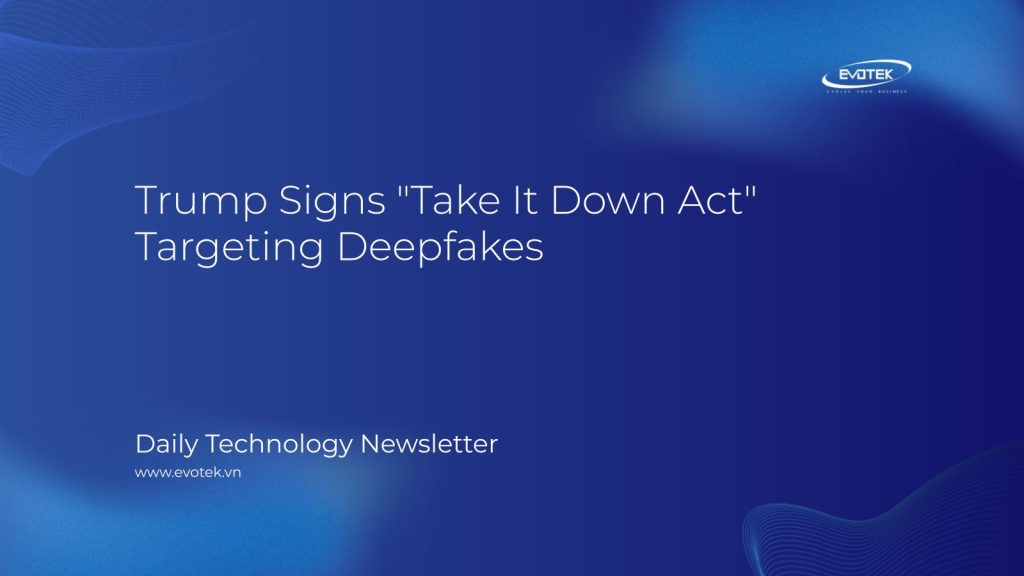President Donald Trump has officially signed the “Take It Down Act” into law, a move designed to combat the spread of nonconsensual intimate images (NCII), including those generated by AI deepfakes. The bill received widespread support in Congress, focusing on the rapid removal of such content from online platforms.
Authored by Lauren Feiner, the new law mandates social media companies to remove reported NCII within 48 hours and actively seek out and eliminate copies. Failure to comply could result in penalties enforced by the Federal Trade Commission (FTC), with a one-year grace period for companies to adapt.
While the law garnered support from various tech companies, parent and youth advocates, and even First Lady Melania Trump, it also faces criticism. Groups like the Electronic Frontier Foundation (EFF) and the Center for Democracy and Technology (CDT) express concerns that the takedown provision could be misused, potentially chilling free speech and threatening encryption technologies.
Critics also fear the law could be weaponized for political purposes, particularly given President Trump’s comments suggesting he might use the law to address perceived unfair treatment online. This concern is amplified by the administration’s past actions, including controversial moves within the FTC.
The Cyber Civil Rights Initiative (CCRI), while advocating against image-based abuse, ultimately opposes the “Take It Down Act,” citing concerns that the takedown provision could give survivors “false hope.” CCRI President Mary Anne Franks suggests the provision could be a “poison pill,” potentially overwhelming platforms with false reports and hindering their ability to address legitimate complaints.
Despite the criticism, President Trump dismissed concerns during the signing ceremony, referencing various constitutional amendments. Experts like Becca Branum from CDT’s Free Expression Project note the law’s ambiguous drafting, making it difficult to immediately challenge its constitutionality. Future legal challenges may arise if lawful content is removed or if the FTC aggressively enforces the law.

 日本語
日本語 한국어
한국어 Tiếng Việt
Tiếng Việt 简体中文
简体中文